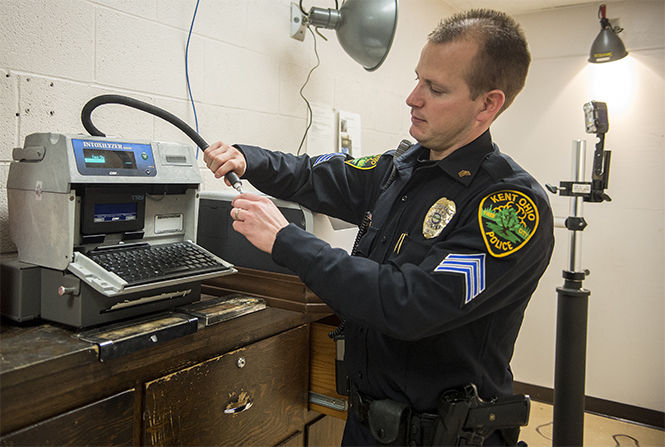ROTC students struggle with scheduling (test)
January 10, 2015
Enlist in the military or pay back scholarships: This is the decision faced by ROTC members who do not graduate on time.
Kent State’s registrar office allows cadets to register for classes on a slightly different schedule than other students. As opposed to the traditional credit-based schedule, cadets can register on the first day available for their year in school. This option was made available this past spring when registering for fall classes, said Lt. Col. Daniel Finkelsein.
Finkelstein said cadets sign a contract with the United States government agreeing to graduate by a certain date and, in turn, are given scholarships by the government. If cadets are not able to graduate by their designated date, they must either pay back their scholarships or enlist in the military for two years.
In past semesters, Finkelstein has reached out to department heads to help cadets get in their classes to prevent this dilemma from happening.
Additionally, cadets commonly struggle with scheduling classes that conflict with their weekly ROTC classes, said Paul Makuszewski, a ROTC member and senior computer science major.
“I’ve had some courses where I’ve had to push them back multiple semesters,” Makuszewski said. “And not knowing when I’ll graduate because I can’t get the courses in.”
Gail Rebeta, Kent State’s university registrar, said there were many considerations when coming to her decision to revise ROTC students’ registration schedule in the spring of 2014.
“What we worked out, with the assistance of the provost office, was this opportunity for them to receive some priority registration for those ROTC student who were under contract,” Rebeta said. ”I thought, based on what they were asking for, that this was a fair compromise.”
Melody Tankersley, associate provost for academic affairs, said she communicates with both ROTC and Rebeta about matters like these.
“She has to balance in making those decisions,” Tankersley said of Rebeta. “I am confident that she gave every consideration possible in coming to this conclusion and she’s always open to seeing how it works and if we need to readjust at any point.”
Contact XYZ at [email protected].





















